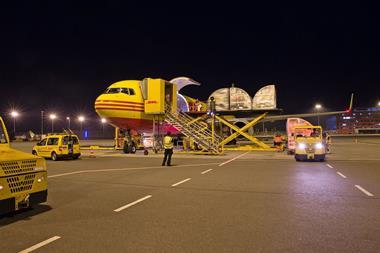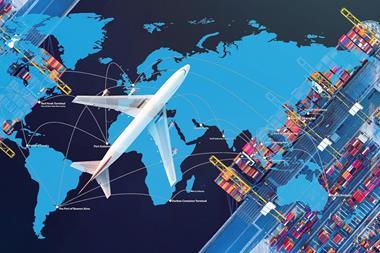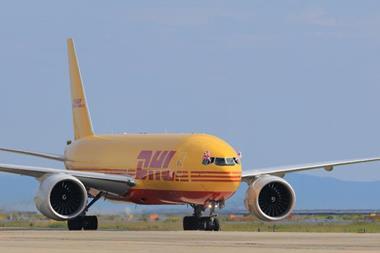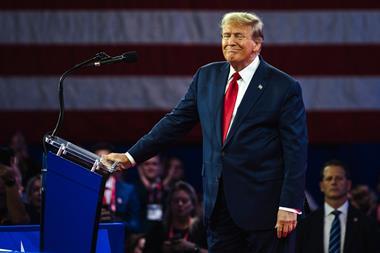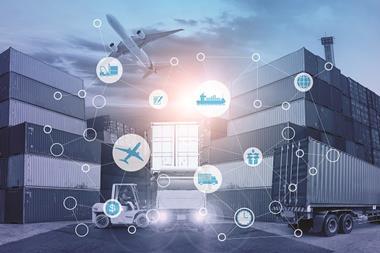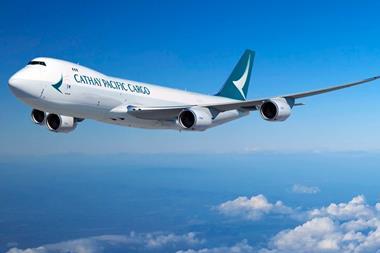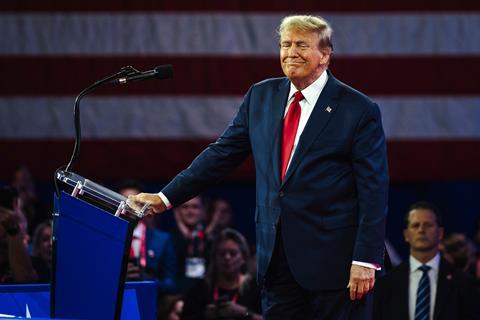
US president-elect Donald Trump has provided more details on his plans to levy tariffs on China, Mexico and Canada on his first day back in the White House.
Trump, who will be inaugurated on January 20, has said he will sign an executive order imposing tariffs of 25% on all goods from Mexico and Canada and an additional 10% on imports from China, above any additional tariffs.
He said the tariffs would help reduce drug smuggling and illegal immigration into the US.
“I have had many talks with China about the massive amounts of drugs, in particular Fentanyl, being sent into the US – but to no avail,” he posted on social media platform Truth Social. “Representatives of China told me that they would institute their maximum penalty, that of death, for any drug dealers caught doing this but, unfortunately, they never followed through, and drugs are pouring into our country, mostly through Mexico, at levels never seen before.”
He said the tariffs would remain in place until the drug smuggling and illegal immigration stop.
Trump has also argued that tariffs would boost US manufacturing.
Mexico, Canada and China are the country’s three largest trade partners and together represent around 40% of the total goods it imports each year.
The implementation of new tariffs will not come as too much of a surprise. On the campaign trail, Trump had threatened tariffs as high as 60% on China.
At the recent TIACA Air Cargo Forum event in Miami, industry leaders said they expected any imposition of tariffs to initially create a rush in demand as companies looked to move goods ahead of their imposition.
DB Schenker executive vice president global airfreight Asok Kumar said: “It has been done before but we didn’t see the impact as wide ranging as we were expecting so we will have to wait and see.
“What I do think might happen is that there is a possibility that shippers may try to rush goods in advance of any such imposition which means we might have a busy couple of months.”
However, he added: “So far, I haven’t heard anything from our customers about doing that.”
Jan Krems, president of United Cargo, said the industry needed to be flexible ahead of any tariffs.
“Goods still have to be made and still have to be shipped to the US. The tariffs and rates, how that will work with e-commerce and on other products, we don’t know, but it will happen for sure, that’s what [Trump] says.
“But we will have to wait and see how much it will be and how it has an effect on us.”
Dirk Goovaerts, global cargo chair of Swissport International, agreed that air cargo needed to be flexible in the face of any changes.
He added that while one market may drop as a result, another could pick up. Meanwhile, there was also the possibility that production could move away from China.
“In our industry, we have to be agile and adapt and see the trends relatively quickly and then move on,” he said.
https://www.aircargonews.net/airlines/air-cargos-wait-and-see-approach-to-us-tariffs-and-positive-demand-outlook-for-2025/










